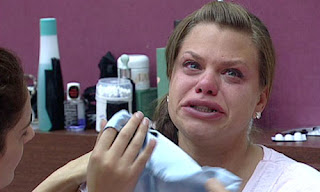
I wasn't sure what to think when I heard wooden actor Christian Bale letting rip with a string of expletives. At first, I thought his rant against the director of photography, on the set of the new Terminator movie, was a joke. But as his anger became apparent, I was struck by the inappropriate nature of his rage.
I understand that when an actor is performing, none of the crew are supposed to move. In this case, the DoP had gone to check a light and entered into Bale's line of sight. However, in all the years I worked as a TV director neither I nor any of the talent with whom I worked subjected our colleagues to the haranguing, foul-mouthed outburst that Bale thinks is acceptable.
The film director Michael Winner, interviewed on BBC Radio 4s Today programme, took Bale's side. You can hear the interview here. All I can say is, if that's how film folk talk to each other, I'm glad I stuck to TV!
Finally, as if to show how the postmodern and inter-textual nature of the web-connected world is altering the speed and nature of content production and syndication, an American DJ has taken the rant and turned it into a song! Apparently, it's doing well in clubs. The world has indeed gone mad....
Boston.com writer Ty Burr summarises the state of modern celebrity succinctly, when he writes, "it's now a technological cargo cult in which we own any and all chunks of a celebrity not controlled by the official machine."







